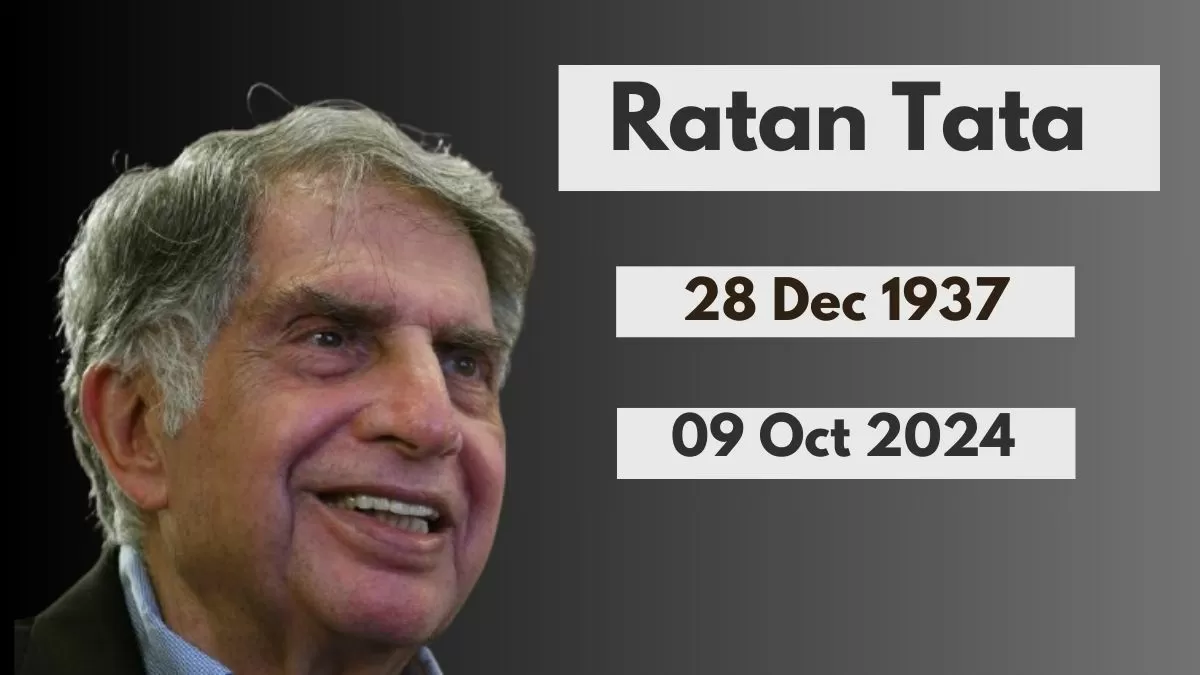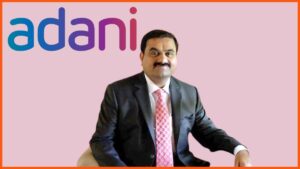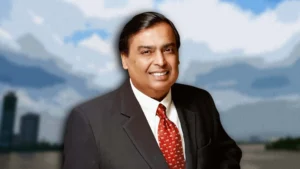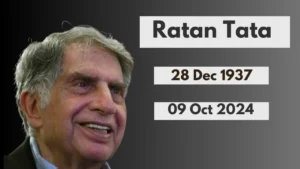Who Owns Majority Stakes in Tata Sons? It’s Not Ratan Tata, Jimmy Tata, Noel Tata; the Owner Is…
The Tata Group is one of the most respected and well-established business conglomerates in India. Many believe that the well-known Tata family, particularly Ratan Tata, Jimmy Tata, or Noel Tata, owns the majority stakes in Tata Sons, the holding company of the Tata Group. However, the actual majority stakeholder may surprise you. This article delves into who really controls the stakes in Tata Sons, shedding light on the complex structure behind one of India’s largest enterprises.
Understanding Tata Sons: The Backbone of Tata Group
Tata Sons is the principal holding company and promoter of the Tata Group. Founded by Jamsetji Tata in 1868, the Tata Group now operates in over 100 countries, spanning sectors like automotive, IT, steel, telecommunications, and hospitality. Tata Sons plays a central role in managing and supporting these businesses through its shareholdings and strategic direction.
The misconception that prominent members of the Tata family—Ratan Tata, Jimmy Tata, or Noel Tata—control Tata Sons is widespread. However, a closer look reveals a different picture.
The Real Owner: Tata Trusts
The majority stake in Tata Sons is not held by any individual from the Tata family. Instead, the largest shareholder is Tata Trusts, a set of philanthropic organizations that collectively own a significant portion of Tata Sons. These trusts were established by the founding members of the Tata family, notably JRD Tata and Jamsetji Tata, to serve philanthropic causes and uplift society.
As of now, Tata Trusts hold approximately 66% of Tata Sons’ equity. The two key trusts are:
- Sir Dorabji Tata Trust
- Sir Ratan Tata Trust
These trusts work in various fields, including education, healthcare, rural development, and environmental conservation, reflecting the company’s long-term commitment to social causes.
Why Don’t the Tata Family Members Own the Majority Stake?
It might seem surprising that the Tata family does not control the majority stake in Tata Sons, given their legacy and influence. However, the structure is intentional, set up by the early members of the Tata family, to ensure that the company remains committed to social and charitable causes rather than personal or commercial interests.
The shares held by Tata Trusts enable the organization to have a strong influence over Tata Sons without being tied to the fortunes of individual family members. This arrangement has allowed the group to maintain its focus on long-term value creation and public welfare.
Ratan Tata’s Role and Influence
Despite not owning the majority stake, Ratan Tata is a prominent figure in the Tata Group. His leadership has been crucial in the company’s growth and expansion into various industries, including automobiles (Tata Motors) and software services (Tata Consultancy Services). Even though he doesn’t hold the majority shares, his influence and vision have shaped Tata Sons for decades.
Ratan Tata is the chairman of Tata Trusts, which gives him significant control over the direction of Tata Sons. His position enables him to influence key decisions without being the largest shareholder himself. It’s an example of leadership where influence and vision matter more than ownership.
Other Minority Stakeholders in Tata Sons
Besides Tata Trusts, there are other minority stakeholders in Tata Sons. These include:
- Shapoorji Pallonji Group: The Shapoorji Pallonji Group, led by Cyrus Mistry’s family, holds around 18% of Tata Sons. This group has had historical ties with the Tata Group, dating back to the 1930s. Despite being a minority shareholder, their stake is significant and has led to legal and corporate battles in the past.
- Tata Family Members: Although the Tata family members do hold some shares, they represent a minimal portion of the total compared to Tata Trusts. Individuals like Jimmy Tata and Noel Tata have roles within the group, but their ownership is symbolic rather than substantial.
Cyrus Mistry’s Legal Battle and Its Impact
Cyrus Mistry, a member of the Shapoorji Pallonji Group, served as the chairman of Tata Sons from 2012 until his controversial removal in 2016. His family’s stake in Tata Sons is the largest after Tata Trusts, making them influential minority stakeholders.
Mistry’s removal led to a legal dispute between the Shapoorji Pallonji Group and Tata Sons, as the group challenged the governance and management practices of Tata Sons. The legal battles highlighted the complex ownership structure and the power dynamics between the majority stakeholder, Tata Trusts, and other minority shareholders.
How Tata Sons’ Ownership Structure Impacts Its Business Decisions
Tata Sons’ unique ownership structure significantly influences its business decisions. Since the majority of shares are held by philanthropic trusts, the focus of the company remains on long-term sustainability and social good. This differentiates Tata Sons from other family-owned conglomerates or publicly listed companies that prioritize short-term profit over broader impact.
- Long-Term Investments: Tata Sons invests in projects that might take decades to yield results, such as Tata Steel and Tata Motors’ electric vehicles initiative.
- Social Impact: The influence of Tata Trusts ensures that a significant portion of the profits generated by Tata Group companies go towards philanthropic activities, such as improving healthcare infrastructure, supporting education, and developing rural communities.
The Legacy of the Tata Group: More Than Just Business
The Tata Group’s approach to business is built on a legacy of value creation and social responsibility. The decision to keep the majority ownership under Tata Trusts reflects a deep-seated commitment to serve society. It highlights the idea that a business can thrive while focusing on long-term benefits, not just profits.
The Tata family, particularly Ratan Tata, has played an influential role in maintaining this legacy, even without holding majority stakes. The philanthropic and business contributions of Tata Sons make it more than just a commercial entity; it’s a driver for social change in India and beyond.
Conclusion: The True Owners of Tata Sons
The majority of the stakeholders in Tata Sons are not well-known Tata family members like Ratan Tata, Jimmy Tata, or Noel Tata. Instead, it is the Tata Trusts that hold the majority stake, ensuring that the group’s focus remains on philanthropy and long-term social impact.
This ownership structure reflects the Tata Group’s mission to create lasting value, not only for its shareholders but for society as a whole. The legacy of Tata Sons is one where business and social responsibility are inextricably linked, making it a unique and admired conglomerate on a global scale.












12 thoughts on “Who Owns Majority Stakes in Tata Sons? It’s Not Ratan Tata, Jimmy Tata, Noel Tata; the Owner Is…”
Heya i’mfor the primary time here. I came across this
board and I in finding It truly helpful & it helped me out
much. I holpe to provide one thing again and help others such as you aided me. https://ternopil.pp.ua/
Pretty section of content. I just stumbled upon your blog and in accesssion ccapital to assert that I acquire actually enjoyed account your blog posts.
Anyway I’ll be subscribing to your feeds andd evgen I achievement you access consistently fast. https://study.ozonetherapy.ru/blog/index.php?entryid=55567
Article writing is also a excitement, if you be familiar with after that you can write otherwise it iis complex to write. https://study.ozonetherapy.ru/blog/index.php?entryid=55653
I leave a leave a response whenever I especially enjoy
a post on a website or I have something to valuable to contribute to the discussion. Usually it is
caused by the passion communicated iin the post I read.
And on this article Who Owns Majority Stakes in Tata Sons It’s Not Ratan Tata.
I was moved enough to leave a comment 🙂 I actually doo have a feww questions for you if
it’s allright. Could it be simply me or does it seem likee some of tthe omments come across
as if they are coming from brain dead visitors? 😛 And, if youu
are writing at othwr online sites, I would like to
keep up with everything fresh you ave to post. Would you make
a list all of your communal pages like your Facebook page, twitter feed, or linkedin profile? https://planetbee.gr/blog/index.php?entryid=676
Hmm it looks like your site ate my first comment (it
was extremely long) so I guess I’ll just sum itt up what I submitted and say, I’m thoroughly enjoying your
blog. I as well am an aspiring blog writer but I’m still new to the whole thing.
Do you have any tips and hints for inexperienced blog writers?
I’d genuinely appreciate it. https://www.kenpoguy.com/phasickombatives/profile.php?id=2329273
Hi every one, herre every person is sharing these know-how, so it’s good too read this blog, and I used too pay a quick visit this web site all the time. http://forum.altaycoins.com/profile.php?id=931976
I truly love your site.. Great colors & theme.
Did you develop thios sitge yourself? Please reply back as I’m
planhning to create my own site and would like to learn where you got this from or just what the
theme is named. Kudos! https://www.camedu.org/blog/index.php?entryid=118314
Neat blog! Is your theme custom made or did you download
it from somewhere? A theme like yours with a few simple tweeks would really make my blog stand
out. Please let me kow where you got your design. Kudos https://www.waste-Ndc.pro/community/profile/tressa79906983/
Hmmm it looks like your websitfe atte my first comment (it was super
long) so I guess I’ll just sum it up what I wrote and say, I’m thoroughly enjoying
your blog. I as well am an aspiring blog blogger but
I’m still new to the whyole thing. Do you have anny
helpful hints for inexperienced blog writers? I’dgenuinely appreciate it. https://edua-cosmetics.mystrikingly.com/
Howdy just wanted too give you a brief headds up and let yoou know a few of the pictires aren’t loading properly.
I’mnot sure why but I think iits a linking issue.
I’ve tried it in two different browsers and both show the same outcome. https://aulavirtual.isabelsales.com/blog/index.php?entryid=431
Whatt a information of un-ambiguity and preserveness
of precious know-how on the topic of unpredicted feelings. https://banrisul.smartlearn.com.br/blog/index.php?entryid=603
hello!,I love your writing very much! proportion we communicate more about your article on AOL?
I require an expert on this space to solve my problem.
Maybe that is you! Having a look ahgead to peer you. https://www.linkedin.com/pulse/best-ai-writing-research-papers-oksana-popova-2nwaf